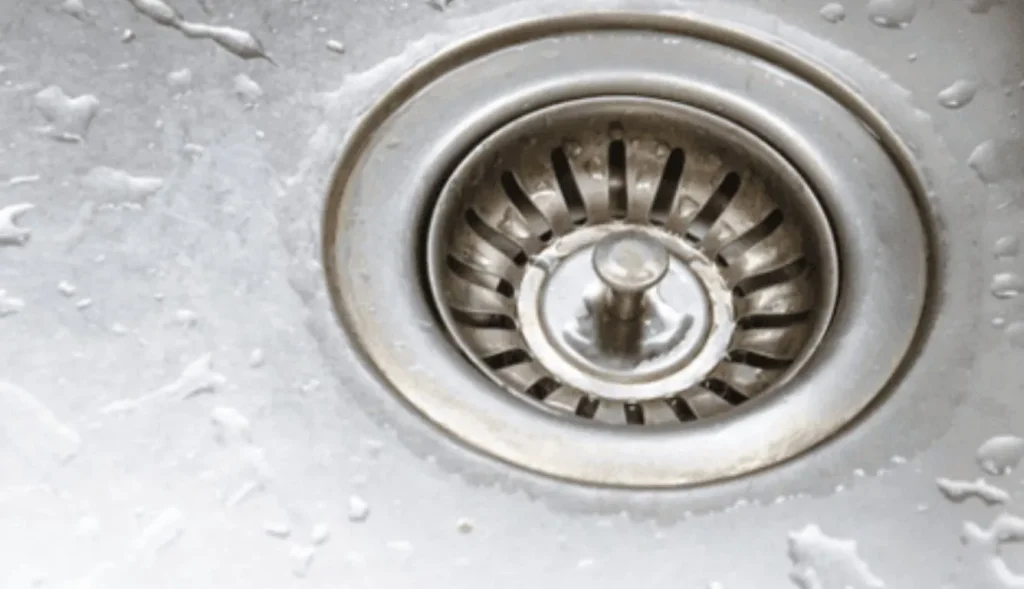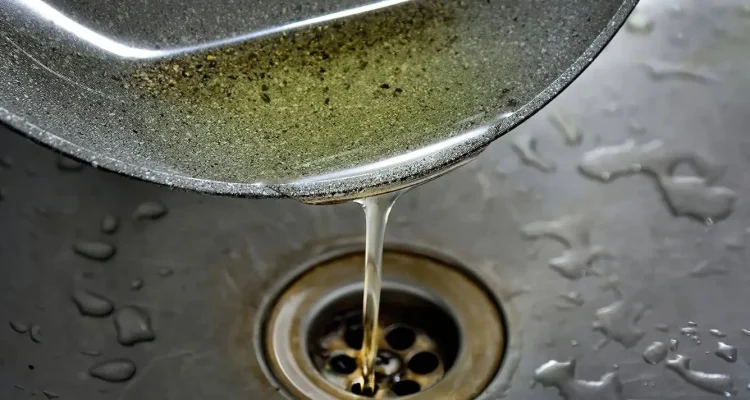Introduction
Grease buildup in sinks is a common issue in many households, often resulting from the accumulation of cooking fats, oils, and other residues. When grease goes down the drain, it can solidify and adhere to the inside of your pipes, leading to clogs and slow drainage. Addressing this problem promptly is crucial to prevent further complications and maintain the efficiency of your plumbing system.

Understanding the Problem
How Grease Affects Your Pipes
Grease is notorious for causing problems in plumbing systems. As it cools, it solidifies and can cling to the walls of your pipes. Over time, this creates a layer of sludge that restricts water flow, leading to blockages. The more grease that builds up, the more severe the clog becomes, potentially causing backups and unpleasant odors.
Signs of Grease Buildup
Signs of grease buildup include slow draining water, gurgling sounds in the sink, and unpleasant smells. If you notice any of these signs, it’s essential to take action before the situation worsens.
DIY Solutions for Unclogging Grease
Hot Water and Dish Soap Method
Materials Needed
- Boiling water
- Dish soap
Step-by-Step Instructions
- Boil a pot of water and carefully pour it down the drain.
- Add a few squirts of dish soap into the drain while the water is still running.
- Let the mixture sit for about 15 minutes to break down the grease.
- Flush the drain with more hot water to clear out the loosened grease.
This method works by using hot water to melt the grease and dish soap to emulsify it, allowing it to wash away more easily.
Baking Soda and Vinegar Method
Materials Needed
- Baking soda
- White vinegar
- Boiling water
Step-by-Step Instructions
- Pour about 1/2 cup of baking soda into the drain.
- Follow with 1/2 cup of white vinegar. The mixture will fizz and bubble.
- Let it sit for 30 minutes to allow the reaction to work on the grease.
- Flush the drain with boiling water to clear the remnants of the grease and baking soda.
This method leverages the natural reaction between baking soda and vinegar to break down grease and clean the pipes.
Salt and Baking Soda Method
Materials Needed
- Salt
- Baking soda
- Boiling water
Step-by-Step Instructions
- Mix 1/2 cup of salt with 1/2 cup of baking soda.
- Pour the mixture into the drain.
- Let it sit for about 30 minutes.
- Flush the drain with boiling water to remove the grease and salt mixture.
Salt acts as an abrasive to help scrub away the grease, while baking soda helps to break it down.
Plunger Method
Materials Needed
- Plunger
Step-by-Step Instructions
- Place the plunger over the drain, making sure it forms a tight seal.
- Push down firmly and then pull up quickly to create suction.
- Repeat the process several times to dislodge the grease.
The plunger method uses pressure to force the grease out of the way, allowing water to flow more freely.
Using Chemical Drain Cleaners
Types of Chemical Drain Cleaners
Chemical drain cleaners are available in various formulations, including those designed specifically for grease. These cleaners can be effective but should be used with caution.
How to Use Chemical Drain Cleaners Safely
- Follow the manufacturer’s instructions on the label.
- Wear gloves and eye protection to avoid contact with the chemicals.
- Ensure good ventilation in the area to avoid inhaling fumes.
Potential Risks and Precautions
Chemical cleaners can be harsh and may damage your pipes if used excessively. They can also be harmful if they come into contact with skin or eyes.
Plumbing Tools and Techniques
Plumbing Snake
A plumbing snake is a flexible tool that can reach deep into pipes to remove clogs.
How to Use a Plumbing Snake
- Insert the snake into the drain and rotate it to break up the clog.
- Push the snake further down the pipe to clear the blockage.
- Withdraw the snake and clean it off.
Plumber’s Auger
A plumber’s auger is similar to a snake but typically has a more robust design for tougher clogs.
How to Use a Plumber’s Auger
- Insert the auger into the drain and turn the handle.
- Push it down the pipe until it reaches the clog.
- Break up the clog by rotating the auger.
Pipe Inspection Tools
Pipe inspection tools, such as cameras, can help locate and assess clogs without disassembling the plumbing.
Benefits of Pipe Inspection
Pipe inspection can identify the exact location and cause of the clog, making it easier to address the problem effectively.
Preventative Measures
How to Avoid Grease Buildup
- Dispose of grease properly by allowing it to cool and then throwing it away.
- Use a sink strainer to catch food particles that can contribute to grease buildup.
Best Practices for Sink Maintenance
- Regularly clean your sink and drain to prevent grease accumulation.
- Run hot water through the drain periodically to help dissolve any grease.
When to Call a Professional
Signs You Need Professional Help
- Persistent clogs that do not resolve with DIY methods.
- Foul odors or sewage backups.
- Multiple clogged drains in the house.
What to Expect from a Professional Service
A plumber will use specialized tools and techniques to clear the clog and may offer advice on preventing future issues.
FAQs
How often should I clean my sink to prevent grease buildup?
Cleaning your sink regularly, at least once a week, can help prevent grease buildup. Running hot water through the drain occasionally also helps.
Can I use these methods for a kitchen sink and a bathroom sink?
Yes, these methods can be used for both kitchen and bathroom sinks. However, kitchen sinks may have more grease, so they might require more frequent maintenance.
What if the DIY methods don’t work?
If DIY methods don’t resolve the issue, you may need to use a chemical drain cleaner or a plumbing tool like a snake or auger. If the problem persists, consider calling a professional plumber.
Are there any natural alternatives to chemical cleaners?
Yes, baking soda and vinegar are natural alternatives to chemical cleaners and can be effective in breaking down grease.
How can I improve the drainage speed of my sink?
Regular maintenance, such as cleaning your sink and drain, using a sink strainer, and running hot water periodically, can improve drainage speed.
Conclusion
Unclogging grease from your sink can be a straightforward task if you use the right methods. Whether you choose DIY solutions like hot water and dish soap or more advanced tools like a plumbing snake, addressing grease buildup promptly will help maintain your plumbing system. Remember to follow preventative measures to avoid future clogs and consult a professional if needed.


Congratulation!